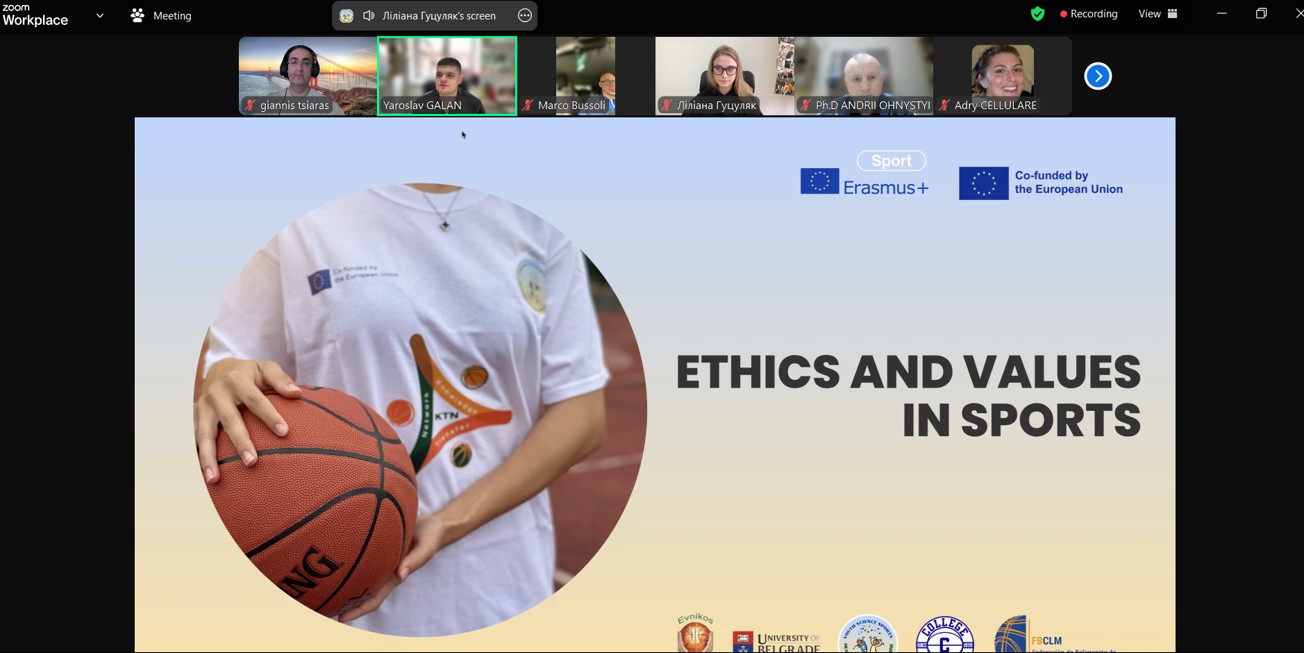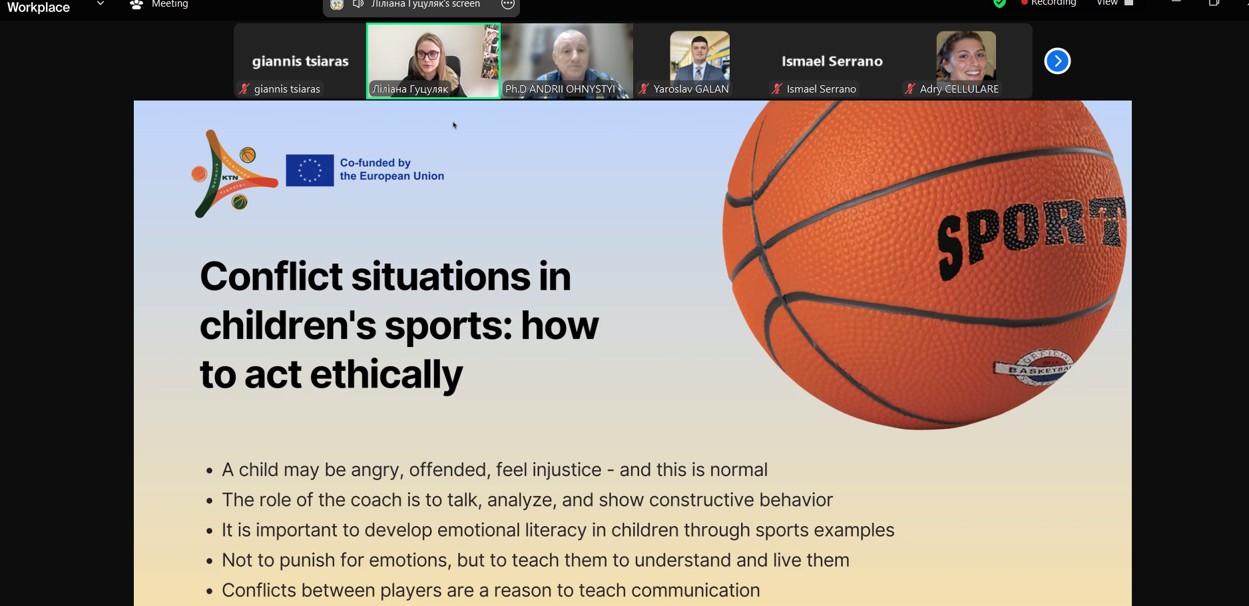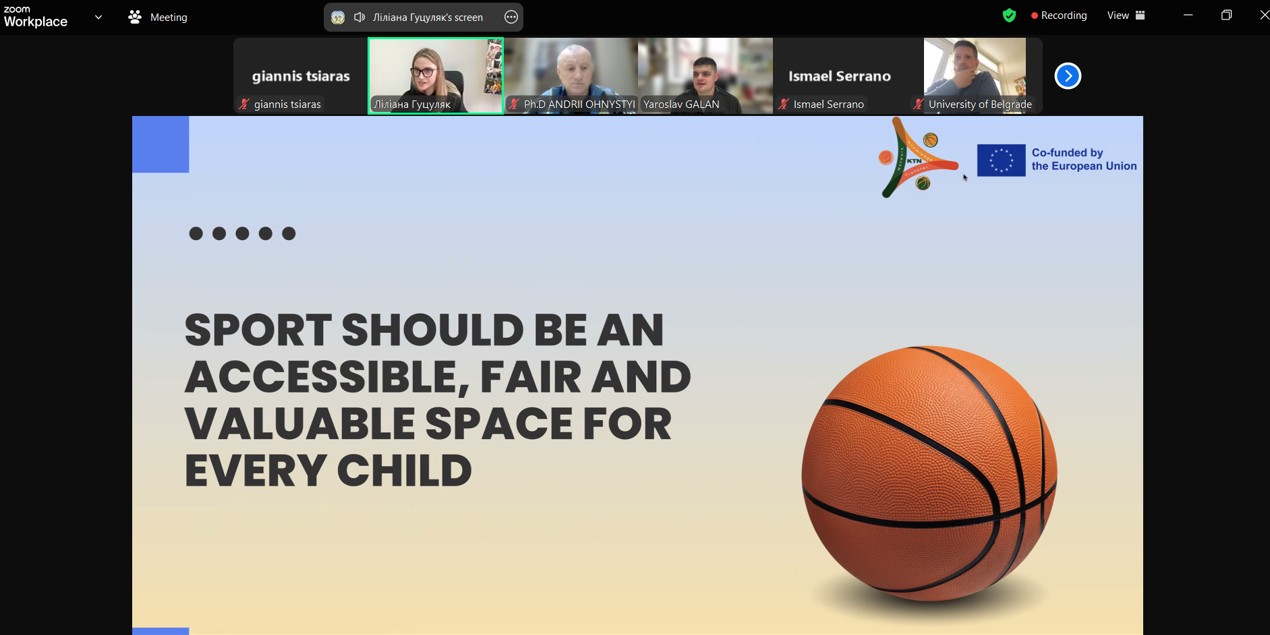Ethics and Values in Sports asynchronous training
As part of the broader initiative on psychological support and well-being within the Basketball-KTN project, YSSUKRAINE, the responsible partner for this activity, organized on April 2, 2025, a webinar dedicated to one of the most essential and timeless topics in youth sport — ethics and values in sport. The session highlighted the role of coaches, parents, and the sporting environment in shaping a young athlete’s moral foundation and fostering character development through basketball.
Ethics in sport, as emphasized during the session, goes far beyond simply following the rules. It means respecting one’s opponent, coach, teammates, spectators, and oneself. During a child’s formative years, when behavior and values are still being shaped, the influence of adults — particularly coaches and team leaders — is crucial.
Speakers stressed that children imitate adult behavior, making ethical leadership and role modeling not optional but fundamental responsibilities. Adults involved in sport, through their attitudes and example, teach children inclusion, fairness, empathy, and respect — the moral compass that guides them both on and off the court.
Olympic Values as a Moral Foundation
The webinar introduced the Modern Olympic Values as a universal framework for ethics in sport: Friendship, Respect, Courage, Persistence, Inspiration, Equality, and Excellence. When practiced consistently, these principles nurture not only athletic achievement but also personal growth and social harmony. Sport, the speakers noted, should be seen not only as physical training, but as a space for cultivating the mind, spirit, and moral strength.
Basketball as a Platform for Values Education
Basketball was presented as an ideal vehicle for teaching ethical principles. Beyond tacticsand skill, the game naturally instills:
In this way, basketball becomes a living classroom of values, where every practice and game serves as an opportunity for self-awareness, respect, and emotional growth.
The Coach’s Role in Managing Conflict
Conflict is a natural part of children’s sport — from frustration after a loss to disagreement between teammates. What truly matters is how adults respond. The session emphasized that:
By cultivating emotional intelligence through sport, coaches help raise not only better athletes but also more emotionally aware, balanced, and confident individuals.
A Vision for the Future
The webinar concluded with a shared vision of a fair, accessible, and value-based sporting culture. True sport, participants agreed, is not only about results and performance but about shaping ethical, resilient young people who carry their values from the court into everyday life.
Through initiatives like this, YSSUKRAINE and the Basketball-KTN network continue to promote sport as a force for education, integrity, and unity — proving that while victories may fade, the values learned through basketball last a lifetime.


